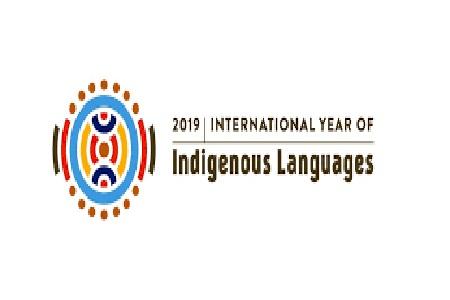
The International Year of Indigenous Languages was proclaimed by the General Assembly of the United Nations with UNESCO as the lead UN agency for the Year. The purpose of the initiative is to raise awareness of the critical risks these languages face and their value as vehicles of culture, knowledge systems and ways of life. Not least, indigenous languages play a crucial role in enabling their communities take their destiny in hand and participate in their countries’ economic, cultural and political life.
UNESCO will launch the International Year with a rich day-long programme on 28 January at the Organization’s Headquarters, starting at 10 am, and an official opening ceremony at 3 pm. The opening will feature addresses by the Organization’s Director-General, Audrey Azoulay, Zohour Alaoui, President of the General Conference of UNESCO, Lee Byong-hyun, Chairperson of the Executive Board of UNESCO, Diego Pary Rodriguez, Foreign Affairs Minister of the Plurinational State of Bolivia, Alfredo Astorga, Vice-Minister of Education of Ecuador and Co-chair of the Steering Committee for the organization of the International Year of Indigenous Languages, Ladislaa Alcaraz De Silvero, Minister, Secretariat of Linguistic Policies of Paraguay, Victoria Tauli-Corpuz, United Nations Special Rapporteur on the Rights of Indigenous Peoples, Aili Keskitalo, President of the Sami Parliament of Norway and Co-chair of the Steering Committee for the organization of the International Year of Indigenous Languages, Akile Ch’oh, Grand Chief Edward John, Tl’azt’en Nation and First Nations Summit of Canada and Co-chair of the Steering Committee for the organization of the International Year of Indigenous Languages. Kitigan Zibi, young musician from Anishinabe nation of Canada will perform at the ceremony.
Several debates during the day will address a wide range of subjects, such as: access to information in indigenous languages, the role and contribution of academia and public organizations in the preservation, access and support of indigenous languages, indigenous languages sustainable development and peace, celebrating indigenous languages through artistic expression and creativity.
Indigenous cultures will be present throughout the day, both as speakers and as artistic performers.
The UNESCO launch has received generous support from Bolivia, Canada, Estonia, Japan, the Russian Federation and Saudi Arabia in cooperation with other partners.
Indigenous languages will be celebrated all over the world during the year (see evolving list on https://www.iyil.org/events.html (link is external)) with the objective of ensuring their protection, which in many cases requires improving the living conditions of indigenous peoples, and strengthening their respective organizations.
To promote indigenous language use and reinforce the International Year’s outreach UNESCO encourages concerned groups and individuals join the #IndigenousLanguages global social media campaign.
The International Year has also been conceived to contribute to the attainment of the goals of international standard-setting instruments concerning indigenous peoples, notably the United Nations Declaration on the Rights of Indigenous Peoples (2006), the International Labour Organization’s Indigenous and Tribal Peoples Convention, 1989 (No. 169), and the outcome document of the World Conference on Indigenous Peoples (2014). It is also intended to promote the United Nations system-wide action plan on the rights of indigenous peoples, and other relevant regional and national frameworks, as well as facilitating the achievement of the United Nations’ 2030 Agenda for Sustainable Development.
Indigenous languages make up the majority of the world’s estimated 7,000 languages and, like all languages, they are depositories and vehicles of culture, knowledge, values and identity, whose loss represents an impoverishment for humanity as a whole, and a tragic disempowerment for the communities that have been prevented from transmitting their mother tongue to their children.
